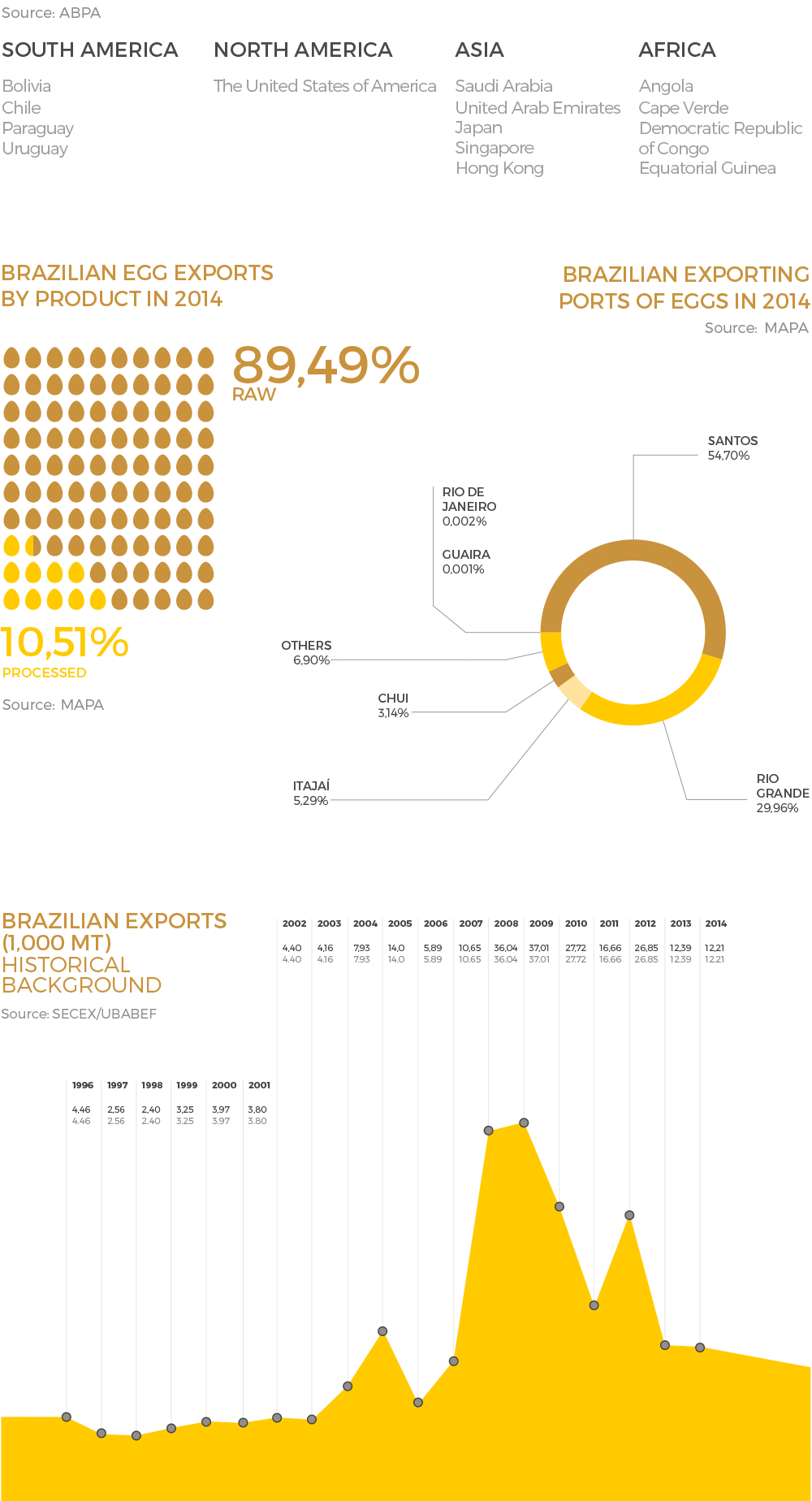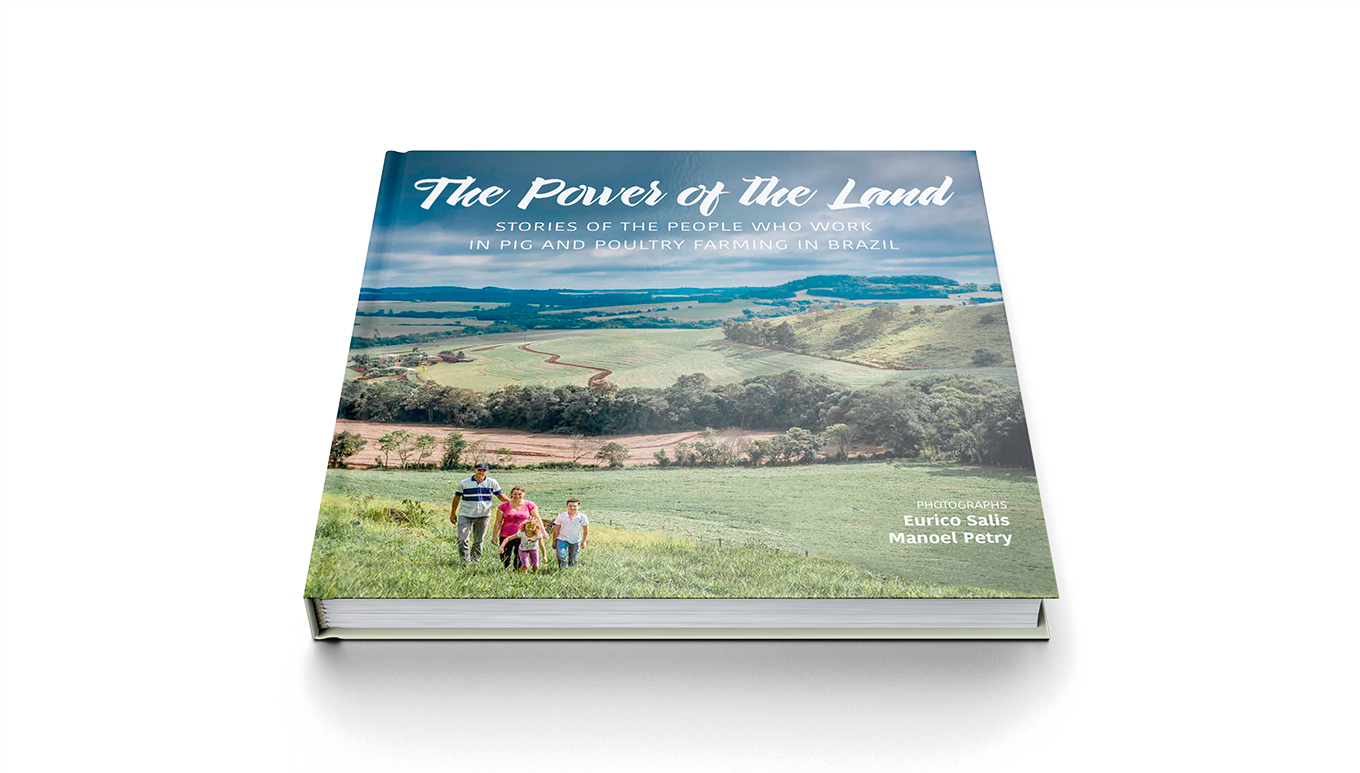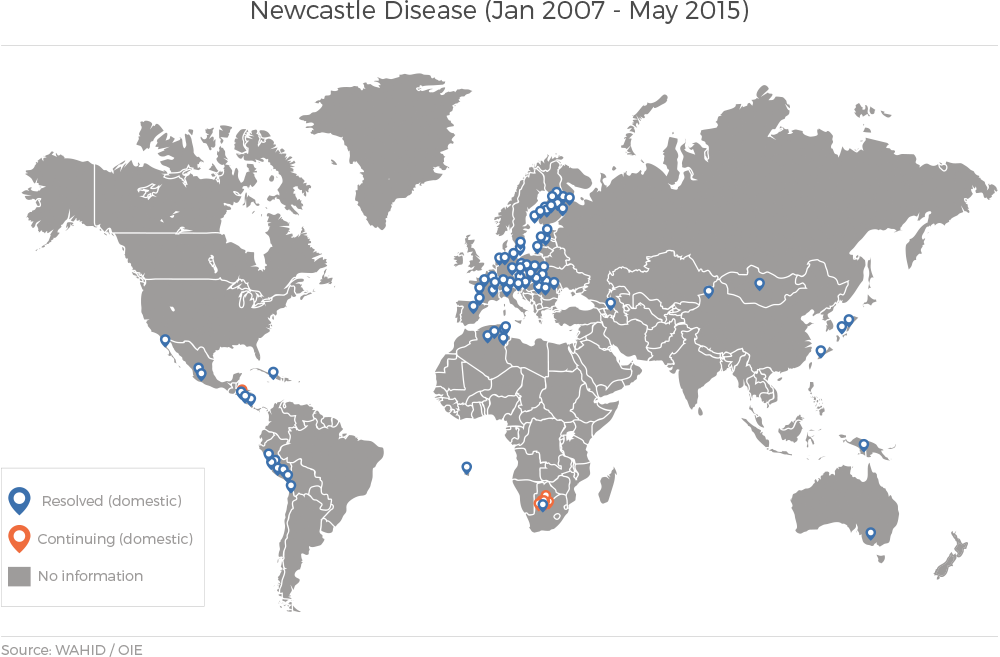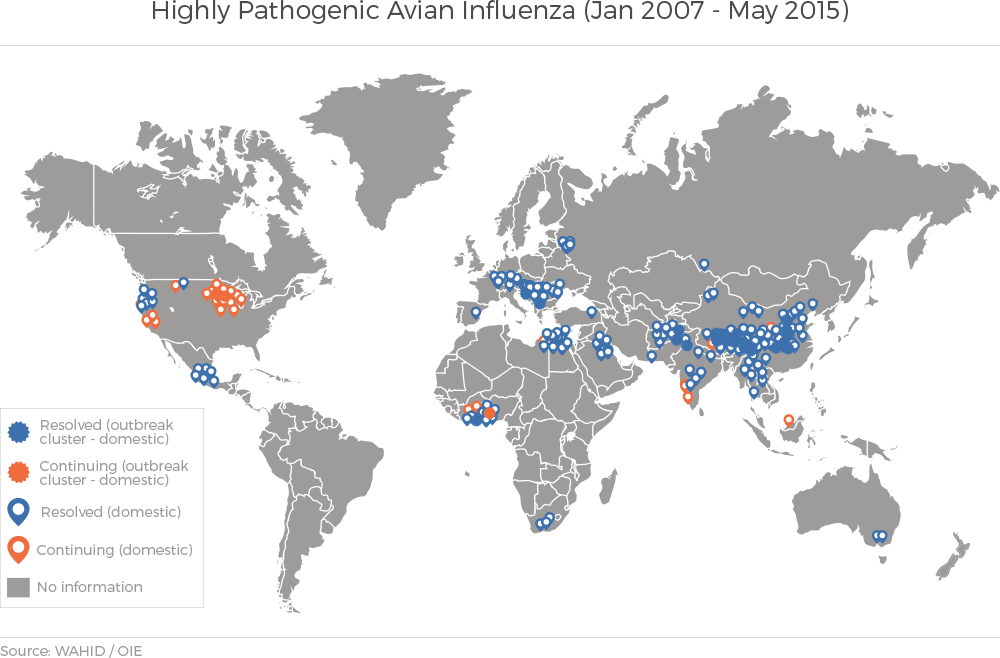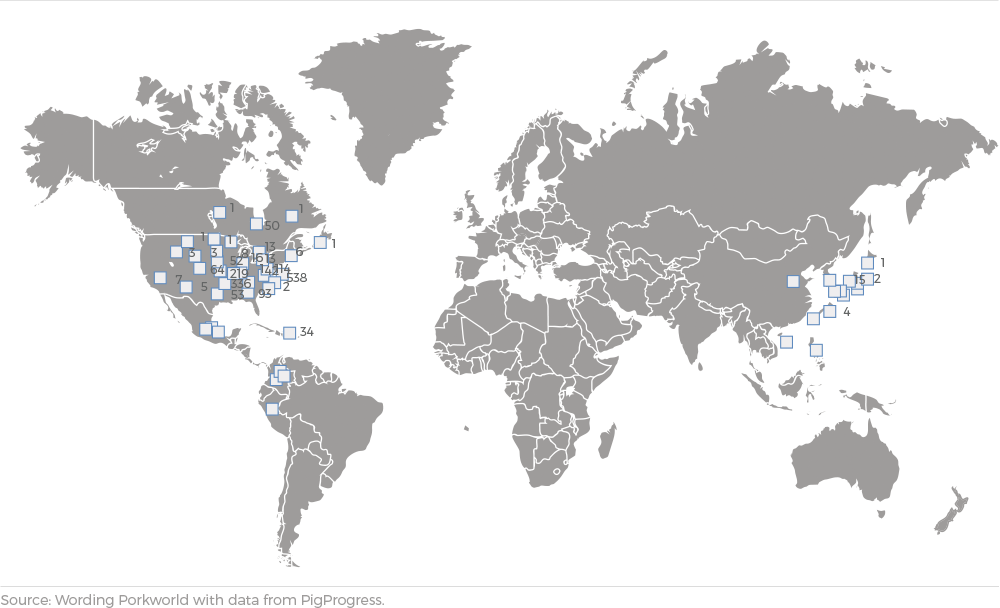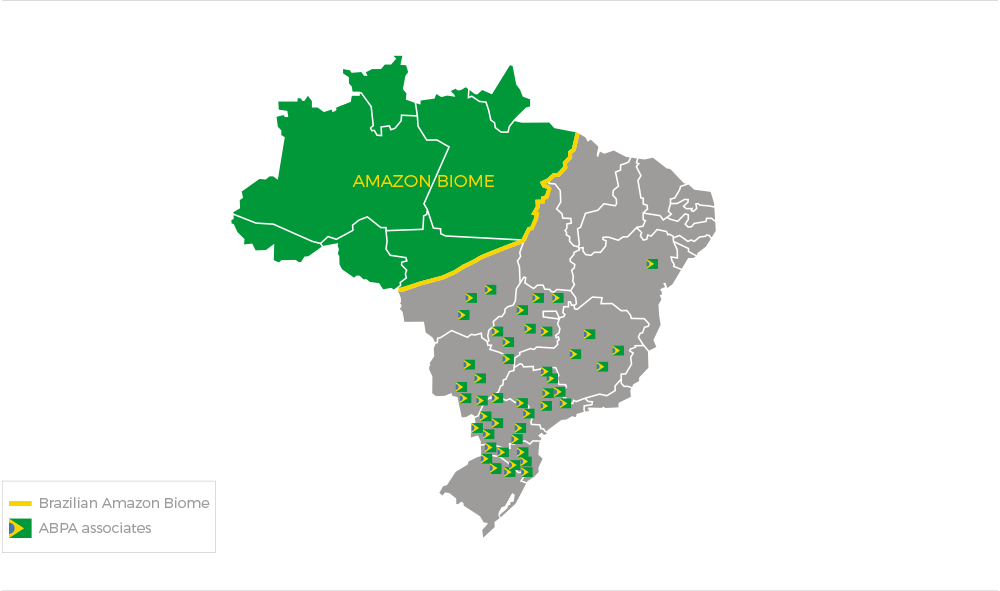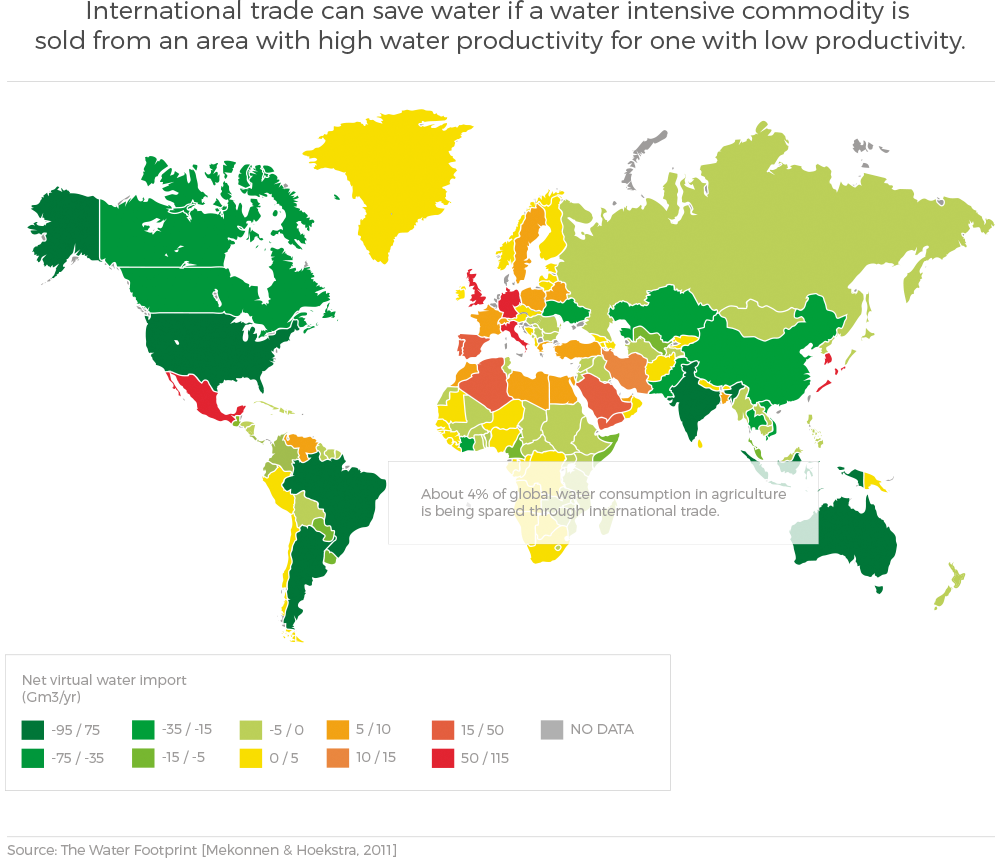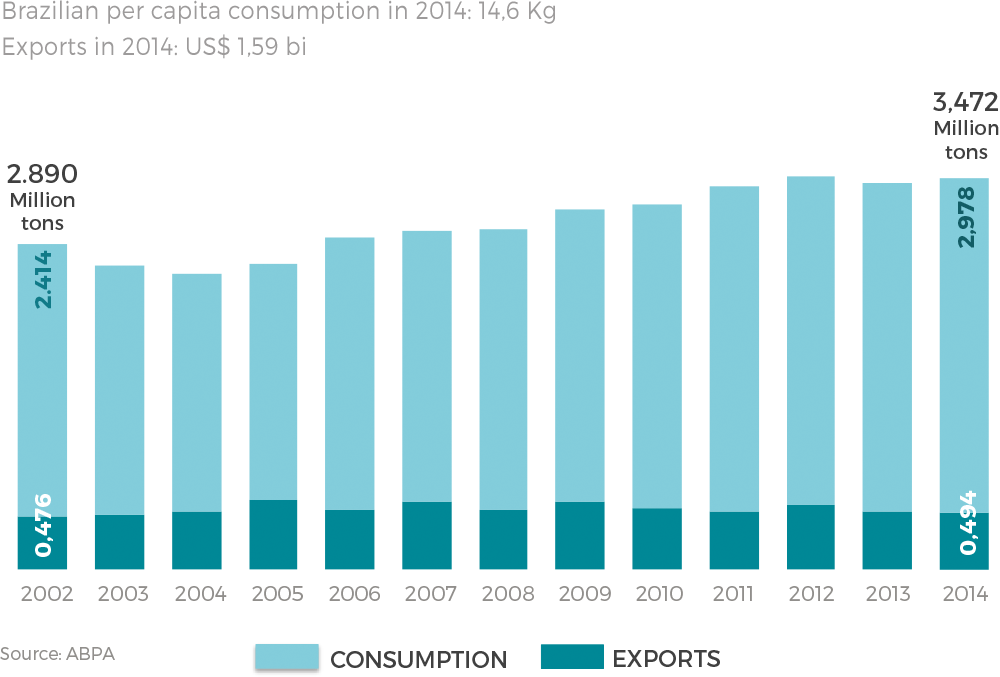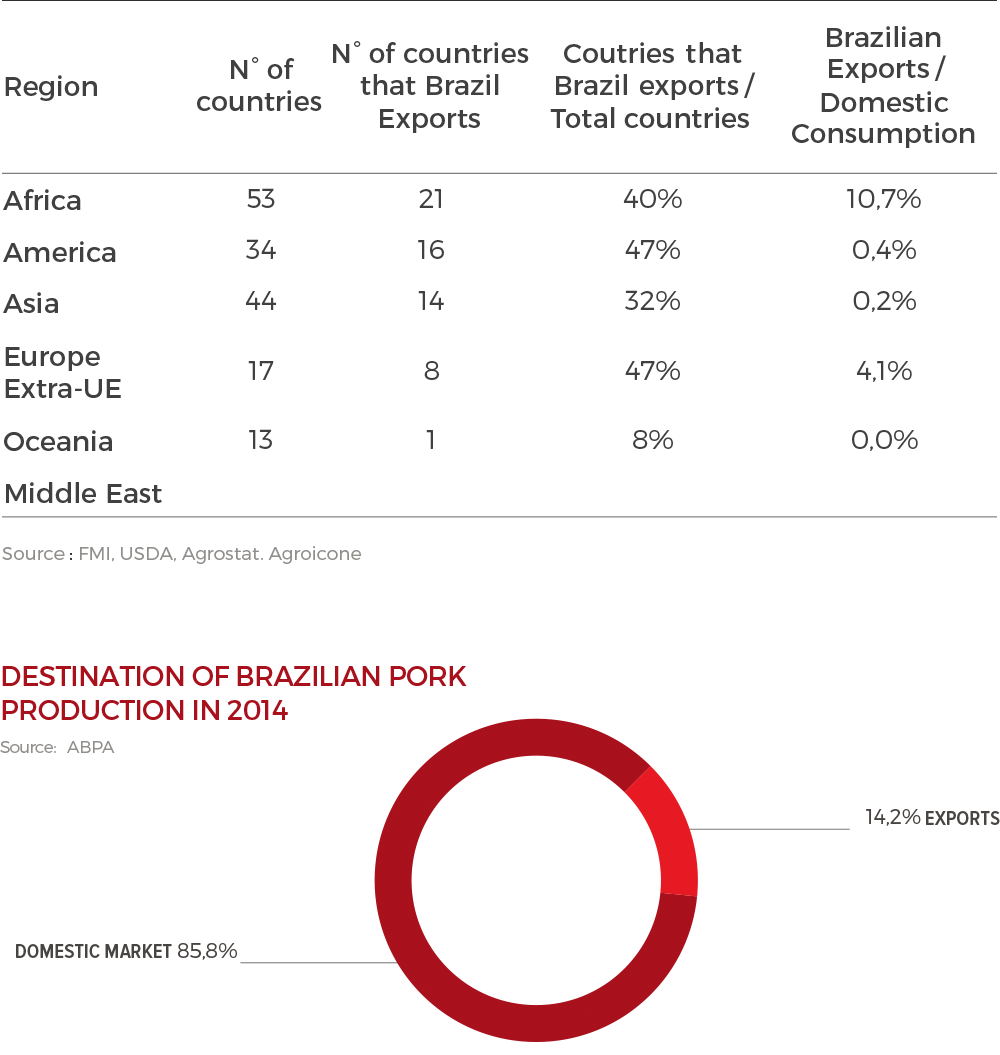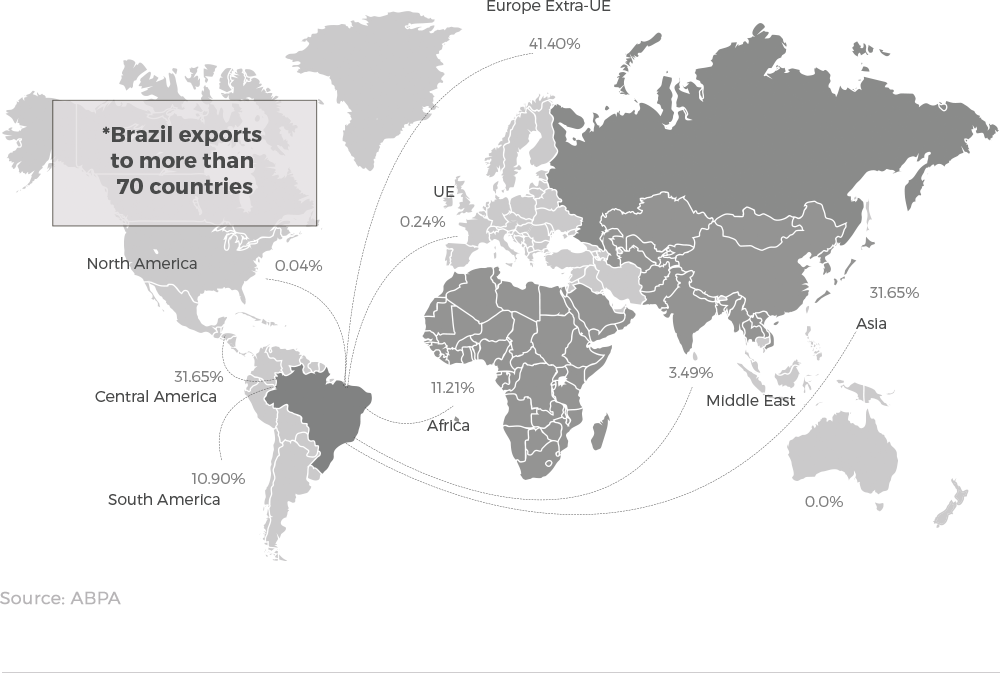Brazilian Poultry Farming
Few countries in the world have the vocation that Brazil has naturally acquired to be recognized internationally as one of the “Barns of the World”.
In poultry farming it has been no different. Currently, over 150 markets import chicken that is “made in Brazil”. Nearly 4 million tons embark from Brazilian ports. This represents nearly one third of the total production.
Technological excellence in genetics, handling and settings have guaranteed increased production that has positioned Brazil as the world’s third largest producer of chicken meat, with over 12 million tons per year of this protein.
This production chain is composed of dozens of agribusinesses all over the country in regions that are known for their European and Asian colonies.
There are also major egg production centers. The largest of these is located in a city called Bastos that is internationally known as one of the greatest producers in the world.
All these components of the chain contribute towards the greatness of the Brazilian poultry business, its quality, health aspects and efficiency that guarantee the presence of Brazilian products on the table of consumers in all five continents.
The Sustainability And Quality Of The Sector
The Brazilian poultry industry is highly sustainable and contributes towards environmental protection. According to the Department for Environment, Food and Rural Affairs (DEFRA) of the United Kingdom, each kilo of chicken in Brazil is produced with nearly half the amount of CO2 emissions if compared with production in England. In numbers, this means that one ton of chicken made in Brazil emits 1.2 CO2 equivalent/ton. In the UK this figure is 2.2. If transport is considered, Brazil emits 2.57 CO2 equivalent/ton and the UK emits 2.82 CO2 equivalent/ton. In other words, in the first case, Brazil has values that are 45% less and in the second case, even considering freight to the European Union, Brazil has a 9% advantage in emissions.
Additionally, Brazilian agribusinesses are located away from the Amazon biome and count on preservation projects for environmental resources. These industries also maintain water conservation projects and special treatment in closed loops. In this respect, Brazil has helped the world by ‘exporting’ water to locations that need it.
The Brazilian recipe for chicken meat exports has worked out very well. Brazil has been in the leading position in terms of world exports since 2004 and contributes towards food safety in over 150 countries in five continents. The strategic partnership with importing countries in complementing market demands, without directly competing with local producers, has guaranteed solid relationships with partners throughout the world.
Brazil is one of the most traditional suppliers of very demanding markets such as Japan and Europe. In Europe, Brazil’s position was consolidated as one of the main suppliers of chicken meat in partnership with the industry, therefore complementing local production.
Brazilian health aspects are also a differential: the country has no registered cases of bird flu. It is the only country in this situation from among all major producers. Strict production control and management models at farms guarantee the continuity of this status.
Brazilian success in this sector has another reason: excellence in quality. With production based on corn and soya, Brazilian chicken is strictly controlled by the country’s authorities and by the authorities of the countries that it exports to.
Brazilian Chicken Meat Production
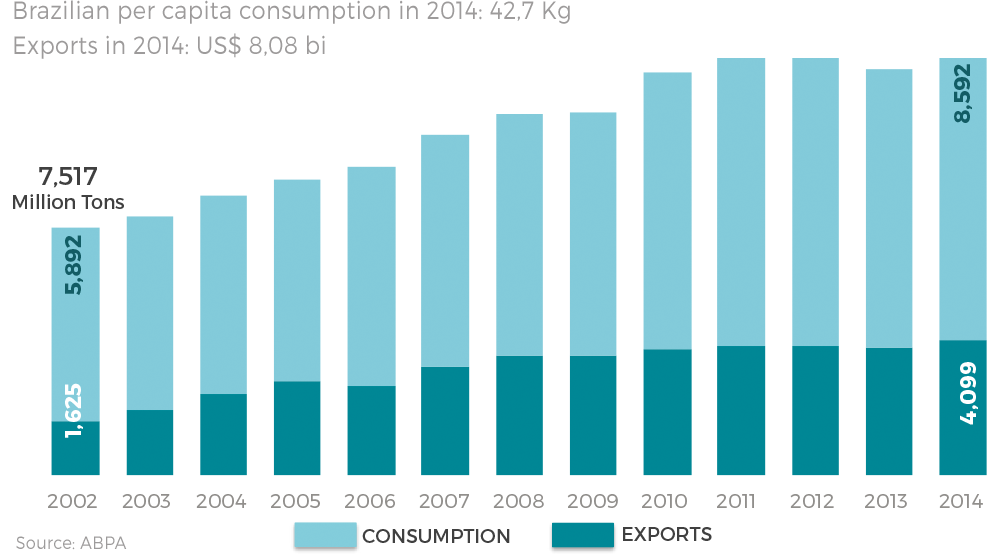
Brazilian Chicken Meat Production
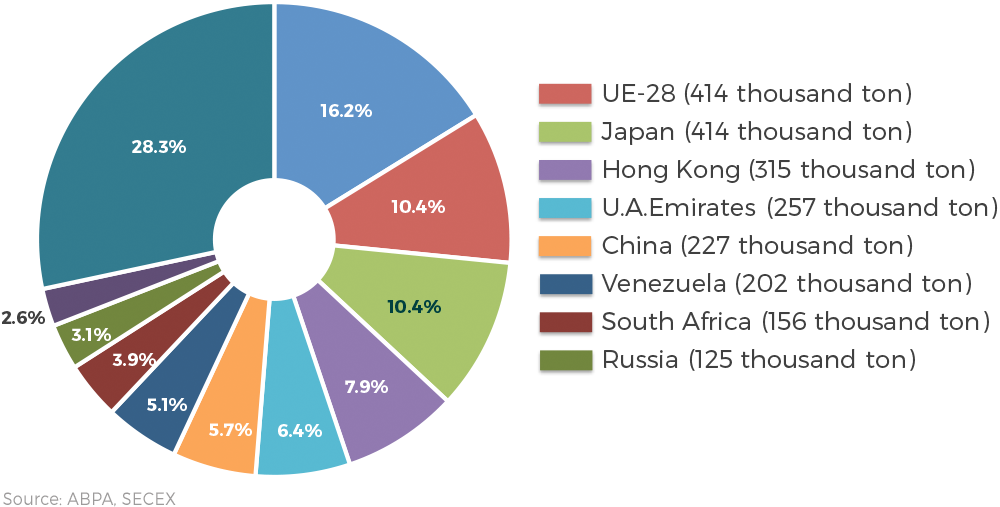
The Integrated Production System

Imports
IMPORTING COUNTRIES
- EUROPE
- Albania
- Germany
- Austria
- Republic of Belarus
- Belguim
- Bulgaria
- Cyprus
- Denmark
- Spain
- Finland
- France
- Greece
- Hungary
- Canary Islands
- Faroe Islands
- Ireland
- Italy
- Macedonia
- Montenegro
- Norway
- The Netherlands
- Poland
- Portugal
- Kyrgystan
- United Kingdom
- Republic of Moldova
- Czech Republic
- Romania
- Russia
- Serbia
- Switzerland
- Ukraine
- SOUTH AMERICA
- Argentina
- Bolivia
- Chile
- Guyana
- Paraguay
- Peru
- Suriname
- Uruguay
- Venezuela
- CENTRAL DA AMERICA
- Anguilla
- Antigua and Barbuda
- The Netherlands Antilles
- Aruba
- Bahamas
- Belize
- Cuba
- Dominica
- Granada
- Haiti
- Cayman Islands
- Panama
- Dominican Republic
- Kitts ans Nevis
- Trinidad and Tobago
- NORTH AMERICA
- Bermuda
- Canada
- The United States of America
- Mexico
- OCEANIA
- Independent and Sovereign
- Republic of Kiribati
- New Caledonia
- New Zealand
- Independent State of Samoa
- Kingdom of Tonga
- ASIA
- Afghanistan
- Saudi Arabia
- Armenia
- Azerbaijan
- Bahrain
- Qatar
- Kazakhstan
- China
- Republic of Korea
- Kuwait
- United Arab Emirates
- Nation of Brunei, the Adobe
- of Peace
- The Philippines
- Georgia
- Hong Kong
- Yemen
- Republic of Iran
- Iraq
- Israel
- Japan
- Jordan
- Lebanon
- Malaysia
- Maldives
- Oman
- Democratic Rep.
- Of Timer-Leste
- Democratic Republic
- of East Timor
- Lao People's Democratic
- Republic
- Singapore
- Arab Republic
- Sri Lanka
- Tajikistan
- Thailand
- Turkenistan
- Turkey
- Uzbekistan
- Vietnam
- AFRICA
- Republic of Burundi
- South Africa
- Angola
- Algeria
- Benin
- Burkina Faso
- Cape Verde
- Cameroon
- Chad
- Congo
- Ivory Coast
- Djibouti
- Egypt
- Gabon
- Gambia
- Ghana
- Guinea
- Guinea-Bissau
- Equatorial Guinea
- Liberia
- Libya
- Madagascar
- Mali
- Morroco
- Mauritius
- Mauritania
- Mozambique
- Namibia
- Niger
- Nigeria
- Kenya
- Central African Republic
- Democratic Republic of
- the Congo
- Republic of South Sudan
- St. Tome and Prince
- Senegal
- Sierra Leone
- Seychelles
- Sudan
- Tanzania
- Togo
- Tunusia
- Uganda
- Zambia

Tasty And Healthy
Brazil is among the top ten egg producers. Brazilian egg are present on the consumer tables in more than 22 countries. Strict watchfulness regarding animal health issues, high quality standards and certifications, as well as reliable food safety practices are present on the egg chain and assure total safety for Brazilian egg consumers.
Avian Influenza Prevention
For now, not a single case of avian flu (H5N1) has been detected on the South American continent. Nevertheless, the Brazilian government has been prepared for a possible pandemic since 2003 to speed up the implementation of preventive measures and disease control. Since 2006, the National Plan for Prevention of Avian Influenza and Control and Prevention of Newcastle Disease modernized laboratories, created hygienic barriers and provided technical training and education.
To Preserve The Amazon Rainforest
The Brazilian agricultural growth has been driven by productivity, not mobility or deforestation. Without threatening the Amazon rainforest, Brazil has plenty of Land available for expansion. There are today about 30 million hectares of available pastures ready to be improved with modern agriculture practices. Furthermore, of the 850 million hectares of Brazil, 510 million are under Brazilian authorities protection, preventing damage to the Amazon ecosystem.
Competitives Advantages
- Perfect climate: Brazil has the perfect weather for many agricultural products;
- Enough land for expansion: Brazil has plenty of land available to support the growth on the poultry sector, without destroying the Amazon rainforest or any other natural reserve;
- Abundance of corn and soybeans;
- Brazil stands as one of the worlds largest producer;
- Cost competitiveness;
- Adaptability to the world demand;
- Leadership in poultry meat exports.
To Implement Environmental Good Practices
The generation of residues and the emission of effluents which result from the industrial process require constant improvement in the operations of the various plants. The monitoring of these materials allows the proper control and reduction of the volume of solid waste. The pursuit of alternatives where the final destination of waste will have less impact is a reality in the Brazilian poultry producers and exporters companies. The waste has been used to produce energy and composting to use as fertilizers.
Federal Inspections Service
All the animal origin products must have a Seal from the federal inspection service. The seal proves that the production plant and its products works under strict sanitary inspection.
Strict Biosecurity
Brazilian poultry producers have adopted biosecurity measures that comprehend rules of producers related to the aviaries location, criteria and restriction of access to them, old day chicks purchase, sanitary handling during the production period, daily cleaning and hygiene after the removal of chickens. All exporters implemented the risk analysis of the different production steps including preventive programs. Statistical control of process has been extend to all units and traceability programs from “farm to table”.
Food Safety
The Hazard Analysis of Critical Control Points (HACCP) is required to egg export plants, even though it was created to be voluntary. This program aims at eliminating all the risks inside the production process. It assures high quality and safe products and is widely accepted internationally.
Imports
IMPORTING COUNTRIES
